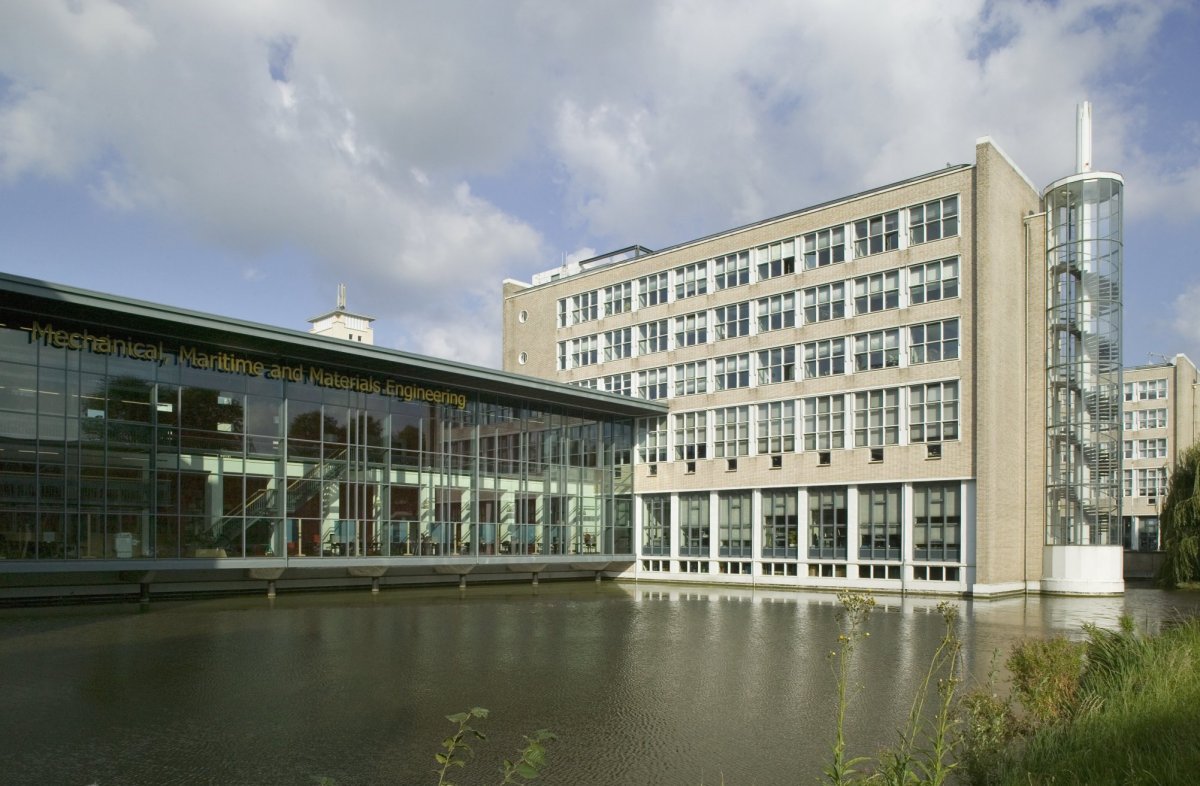Under the name Green-mE, four students are making efforts to make their Faculty more sustainable. They have written a guide containing tips for 3mE students.
“Students want to be more sustainable, but don’t know where to start,” says committee member Barbara de Vries. She became part of Green-mE this academic year. Green-mE consists of a new batch of students every year. To help the students in the Faculty, the group produced a guide. Rick van den Brink, committee member and compiler of the guide, wants Green-mE to play a proactive role. “We can then make sure that the knowledge on sustainability in education accumulates quickly.”
Among the information contained in the guide is information for students to assess how sustainable something is. De Vries cites the Strategy Wheel as an example. “This resembles a spider’s web with eight axes, each of which represents a different part of the production process. You can fill in the value of each axis. It shows you that a change can sometimes be more sustainable on one point, but that in totality, may not always be more sustainable.”
Taking action
This student initiative started in 2016. At the time, no systematic attention was being paid to sustainability in the Faculty of Mechanical, Maritime and Materials Engineering (3mE). Green-mE initiated a survey among students and teaching staff at the Faculty. “Everyone thought that sustainability was important, but no one found it important enough to take action themselves,” says De Vries.
Green-mE presented the findings of the initial survey to the 3mE Director of Education, Hans Hellendoorn. The recommendations were not concrete enough for him. “It was not entirely clear how they could be incorporated into the education,” says Hellendoorn. In the following year, the Green-mE students then thought about putting the ideas into practice. This resulted in a practical guide for students. It was immediately included in the learning. “It contains usable tips for the students that they can put into practice immediately,” says Hellendoorn.
“First year mechanical engineering students must use the guide in prospective projects,” says De Vries. “This makes it easy to incorporate sustainability as it is now part of a larger assignment that you have to do anyway.”
Guest lecture
Green-mE is currently working on preparing a guest lecture for inclusion in the current series of project lectures for first year mechanical engineering students. They want to make the lecture accessible. “We will show how students can apply sustainability in their course project. The threshold for students to do this was too high. We hope to change this.”
Sustainability can and must be improved in 3mE, says education director Hellendoorn. “We already have one teacher who has said that he will no longer use examples from the oil and gas industry when discussing a combustion cycle. Every teacher should do this.” He sees Green-mE as an important mirror for education. “They are alert and watchful. This keeps us on our toes.”
Hellendoorn believes that change in education rests on the teachers. Their willingness is greater than he had expected. “Teachers also see that the environment is deteriorating and they want to include this in their teaching.” The Green Office Delft, with which Green-mE collaborates, is researching the possibility of setting up similar teams in other faculties.
Mirjam van der Ploeg / Stagiaire



Comments are closed.